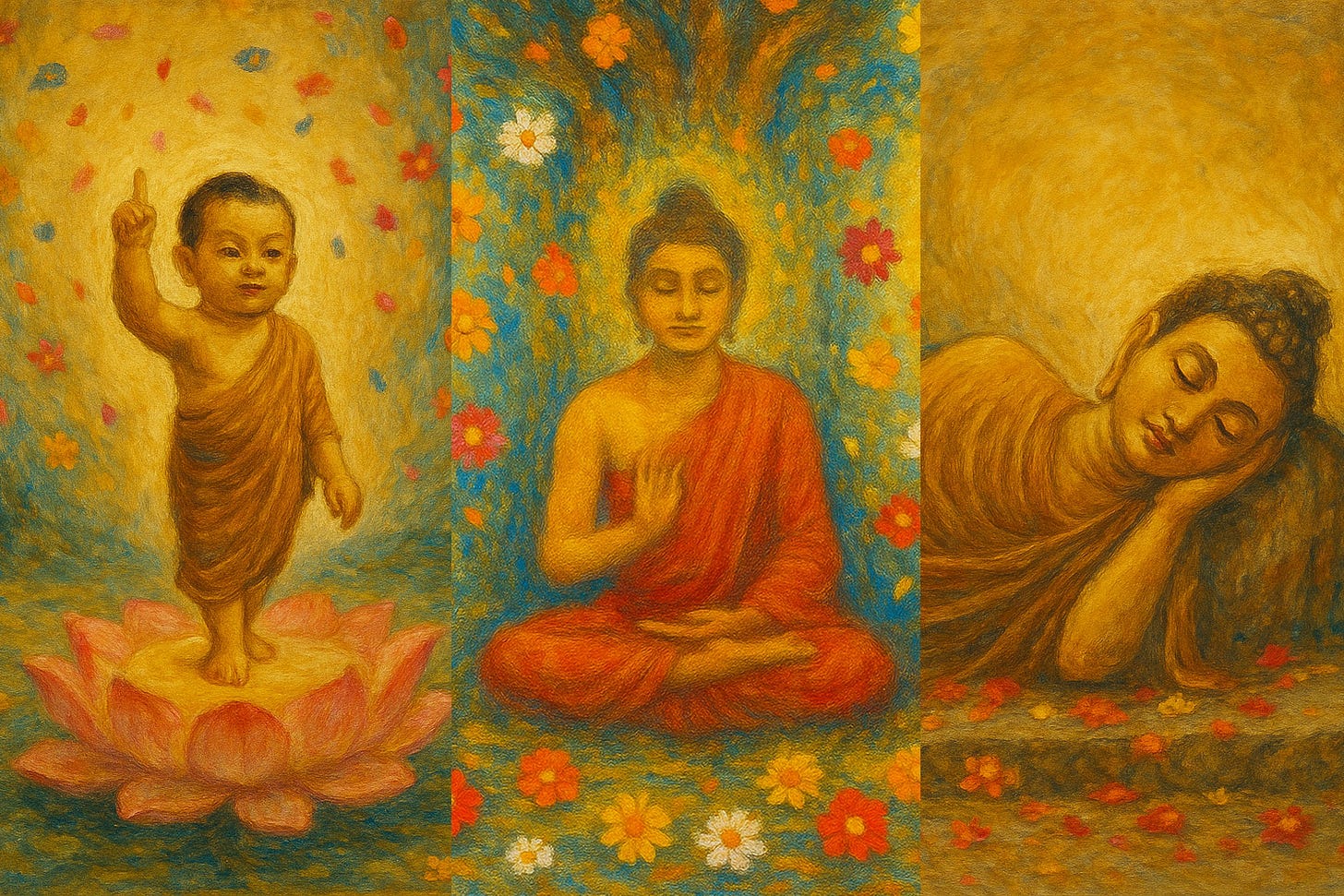Some Gems of June
Can Silence Heal or Solve?
Yes, silence can heal, and it can also solve problems. If only we allowed it.
In a world that celebrates noise—constant opinions, nonstop chatter, instant reactions—we forget the quiet strength of silence.
Silence heals wounds.
Silence gives space for pain to breathe, for thoughts to settle, for wounds to begin mending. In silence, we meet ourselves without filters. No performance. Just presence.
Silence also solves problems.
Not always by giving answers, but by clearing the fog. When words fail, silence teaches us to listen—not just to others, but to our own inner wisdom.
Sometimes the most powerful conversations are the ones we have in stillness. Sometimes peace begins not with a loud declaration, but with a deep breath and a pause.
Will you try silence? Not as escape, but as clarity. Because some remedies soothe and some answers only whisper.
PS: We are holding regular meditation sessions at Mind Body Center. Scroll below for updates.
Meditate with Kathmandu
Limited seats available.
Food Distribution for Orphans
Let’s join our helping hands to cook and feed around twenty-five children living in an orphanage.
Reporting time is 2.30pm at Sitapaila Chowk
To confirm your participation, please call 9841-896000
The Three Sacred Moments
When Buddha was born in Lumbini, the earth rejoiced.
It is said that lotus flowers bloomed under his feet, and celestial beings descended, offering heavenly music and showers of divine blossoms. The skies whispered the arrival of an awakened soul.
At the moment of his enlightenment under the Bodhi tree in Bodh Gaya, the universe paused in silent reverence.
The earth bore witness, the heavens rained flowers once again, and Mara’s illusions faded into the void. Light radiated not just from his body—but from truth itself.
And when he attained Parinirvana in Kushinagar, the forest of sal trees bloomed unseasonably in full glory, as though nature itself mourned and celebrated at once.
Devas offered celestial garlands, and countless beings—both seen and unseen—gathered to honor his passing into eternal peace.
These three events are marked by nature’s unusual harmony, celestial offerings, and profound silence, reflecting the cosmic significance of the Buddha’s presence.
When Silence Hurts More than a “No”
We’ve all been there: you send a message, pitch an idea, or open up emotionally—only to be met with silence. At first, you wait patiently. Then, you second-guess yourself. Finally, the truth dawns: they’re not going to respond. The silence was the answer.
This kind of avoidance is what some call the “soft no.” It’s a form of passive rejection—a refusal to confront discomfort head-on. Instead of offering a clear response, people delay, deflect, or disappear, hoping you'll take the hint without them having to say it outright.
But here’s the truth: it’s not softer. It’s just messier.
The Myth of Kindness in Avoidance
People who default to soft no's often believe they’re being gentle. They don’t want to hurt your feelings or create awkwardness. Saying “no” can feel confrontational—especially when the request or interaction involves vulnerability.
But passive rejection doesn’t spare the other person pain—it extends it.
Waiting for a response that’s never coming can be emotionally exhausting. You start interpreting silences, rereading messages, filling in the blanks with self-doubt. The space between the moment you reached out and the realization that no reply is coming becomes a breeding ground for anxiety.
In contrast, a clear, respectful “no” brings closure. It might sting, but it allows people to move forward with dignity.
Why We Struggle With Saying “No”
Fear of confrontation: Many people were raised to avoid conflict or keep others happy.
Guilt: Saying no feels selfish to those who equate kindness with self-sacrifice.
Uncertainty: Sometimes people aren’t sure how they feel, so they say nothing until clarity arrives (or doesn’t).
Yet the cost of indecision or avoidance isn’t just personal discomfort—it’s the emotional energy we silently drain from others.
The Better Way: Respect Through Clarity
Clear communication isn’t cold. It’s compassionate.
Telling someone “I’m not interested,” “This isn’t the right fit,” or even “I need more time to think about this” honors their effort and spares them unnecessary confusion. It sets boundaries, and boundaries are a sign of respect, not rejection.
Next time you feel tempted to ghost, delay, or dodge an uncomfortable reply, consider this: it’s not your job to protect others from disappointment. It is your job to communicate honestly and let them navigate their own feelings, just as you do.







